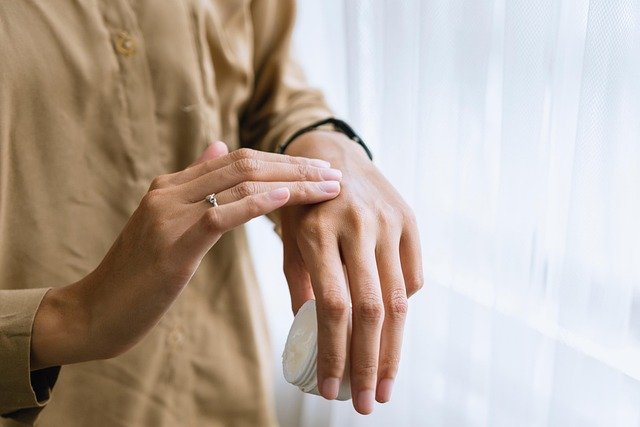Effective Solutions for Genital Psoriasis Care and Treatment
Genital psoriasis is a challenging condition that affects many individuals worldwide. This article explores the most effective solutions for managing and treating genital psoriasis, offering practical tips and insights to help those affected find relief and improve their quality of life. From understanding the unique challenges of this sensitive area to exploring various treatment options, we'll provide a comprehensive guide to help you navigate this often-overlooked aspect of psoriasis care.

What is genital psoriasis and how does it differ from other types?
Genital psoriasis is a specific form of psoriasis that affects the genital area, including the pubic region, vulva, penis, and surrounding skin. Unlike psoriasis on other parts of the body, genital psoriasis tends to appear smoother and redder, without the characteristic thick, scaly plaques. The delicate nature of the genital skin makes this condition particularly challenging to manage, as the area is prone to irritation and discomfort.
What are the common symptoms of genital psoriasis?
Common symptoms of genital psoriasis include redness, itching, burning sensations, and discomfort in the affected areas. The skin may appear smooth but inflamed, and in some cases, there might be slight scaling or cracking. These symptoms can significantly impact a person’s quality of life, affecting intimate relationships and causing emotional distress. It’s crucial to recognize these symptoms early and seek appropriate care to manage the condition effectively.
Which topical treatments are most effective for genital psoriasis?
Topical treatments are often the first line of defense against genital psoriasis. Mild corticosteroid creams are commonly prescribed for short-term use to reduce inflammation and itching. However, due to the sensitive nature of the genital area, these should be used cautiously and under medical supervision. Non-steroidal alternatives, such as calcineurin inhibitors (tacrolimus and pimecrolimus), are often preferred for longer-term management as they carry a lower risk of skin thinning.
How can lifestyle changes help manage genital psoriasis symptoms?
Lifestyle modifications play a crucial role in managing genital psoriasis. Wearing loose, breathable cotton underwear can help reduce friction and irritation. Avoiding harsh soaps and opting for gentle, fragrance-free cleansers can prevent further irritation of the affected skin. Stress management techniques, such as meditation or yoga, may also help, as stress is known to exacerbate psoriasis symptoms. Additionally, maintaining a healthy diet and avoiding potential trigger foods can contribute to overall symptom management.
What are some effective hygiene practices for those with genital psoriasis?
Proper hygiene is essential for managing genital psoriasis. Gently cleansing the affected area with lukewarm water and pat drying, rather than rubbing, can help prevent irritation. After bathing, applying a fragrance-free moisturizer can help keep the skin hydrated and reduce itching. For those who experience discomfort during sexual activity, using lubricants and barrier methods can help protect the skin. It’s also important to communicate openly with partners about the condition to reduce anxiety and ensure proper care during intimate moments.
Are there systemic treatments available for severe genital psoriasis?
For individuals with severe or persistent genital psoriasis that doesn’t respond well to topical treatments, systemic therapies may be considered. These can include oral medications such as methotrexate or biologics that target specific components of the immune system involved in psoriasis. However, the decision to use systemic treatments should be made carefully, weighing the potential benefits against possible side effects.
| Treatment Type | Examples | Potential Benefits | Considerations |
|---|---|---|---|
| Topical Corticosteroids | Hydrocortisone, Triamcinolone | Quick relief of symptoms | Short-term use only, risk of skin thinning |
| Calcineurin Inhibitors | Tacrolimus, Pimecrolimus | Safer for long-term use | May cause initial burning sensation |
| Systemic Medications | Methotrexate, Cyclosporine | Effective for severe cases | Requires close medical monitoring |
| Biologics | Adalimumab, Ustekinumab | Targets specific immune pathways | Higher cost, potential side effects |
Prices, rates, or cost estimates mentioned in this article are based on the latest available information but may change over time. Independent research is advised before making financial decisions.
In conclusion, managing genital psoriasis requires a multifaceted approach combining medical treatments, lifestyle adjustments, and proper hygiene practices. While the condition can be challenging, many effective solutions are available to help control symptoms and improve quality of life. It’s essential to work closely with a healthcare provider to develop a personalized treatment plan that addresses your specific needs and concerns.
This article is for informational purposes only and should not be considered medical advice. Please consult a qualified healthcare professional for personalized guidance and treatment.
The shared information of this article is up-to-date as of the publishing date. For more up-to-date information, please conduct your own research.






